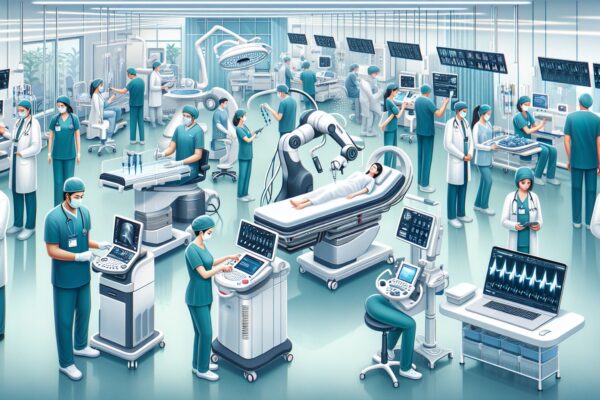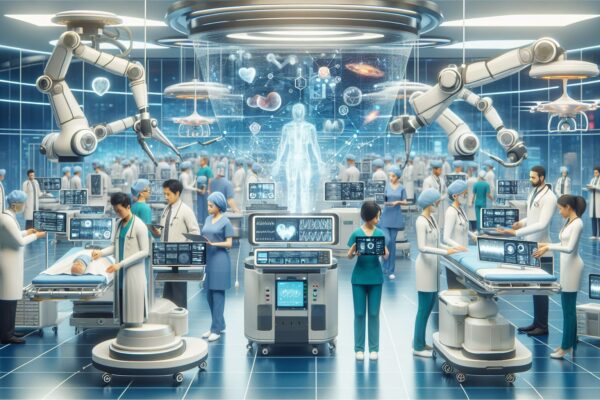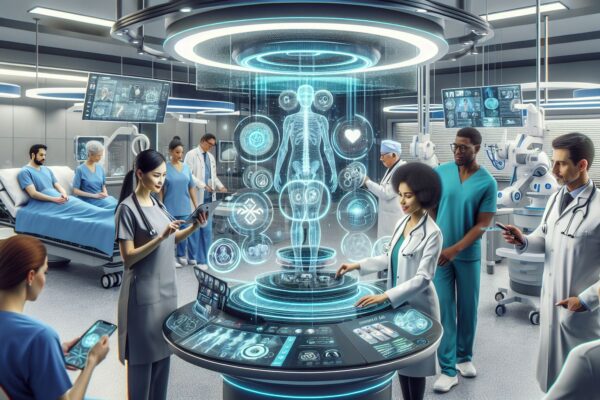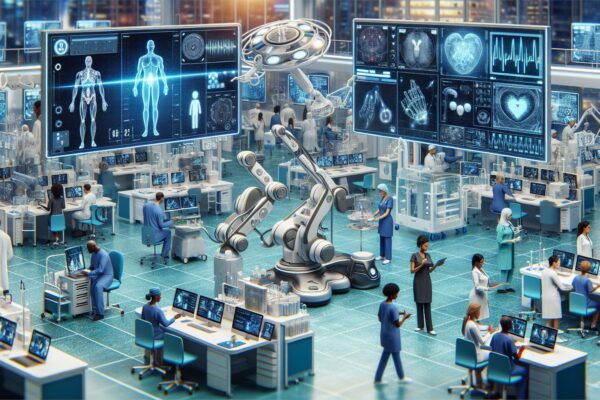Technology has always been at the forefront of revolutionizing industries, and the field of medicine is no exception. In recent years, medical technology has significantly transformed hospitals by improving patient care, increasing efficiency, and enhancing overall treatment outcomes. From electronic health records to robotic surgery, these advancements have revolutionized the way hospitals operate and deliver care.
Enhancing Efficiency and Accuracy in Patient Care
One of the significant benefits of medical technology in hospitals is its ability to enhance efficiency and accuracy in patient care. Electronic health records (EHRs) have replaced the traditional paper-based systems, streamlining the flow of information and enabling healthcare providers to access patient data instantly. This eliminates time-consuming paperwork, reduces errors, and provides a comprehensive view of the patient’s medical history, ultimately leading to more accurate diagnoses and better treatment decisions.
Moreover, medical technology has revolutionized diagnostic testing. Advanced imaging techniques, such as magnetic resonance imaging (MRI) and computed tomography (CT) scans, provide detailed images of the human body, aiding in the detection and diagnosis of diseases. These technologies enable healthcare professionals to pinpoint the root cause of a patient’s condition more rapidly, allowing for timely intervention and treatment, thereby saving lives.
Revolutionizing Treatment Approaches
Medical technology has also revolutionized treatment approaches, with robotic surgery being a prime example. Robotic-assisted surgeries offer several advantages over traditional open surgeries, including smaller incisions, reduced blood loss, and shorter recovery times. Surgeons can use robotic systems to perform complex procedures with precision, improving patient outcomes and minimizing the risk of complications. This technology has transformed the surgical landscape, allowing surgeons to operate with increased dexterity and control.
Furthermore, telemedicine has emerged as a game-changer in healthcare, particularly in remote or underserved areas. Telemedicine enables healthcare professionals to provide remote diagnosis, monitoring, and treatment using telecommunications technology. Doctors can consult with patients virtually, reducing the need for travel and enabling individuals to access quality healthcare from the comfort of their homes. This technology not only ensures better access to care but also minimizes unnecessary hospital visits, reducing the burden on healthcare facilities.
Emerging Trends and Future Prospects
The future of medical technology in hospitals holds immense potential. Artificial intelligence (AI) and machine learning algorithms are being integrated into various healthcare systems to improve diagnosis accuracy and treatment outcomes. AI-driven algorithms can analyze vast amounts of patient data and medical literature to provide insights and recommendations to healthcare professionals. This has the potential to revolutionize personalized medicine, tailor treatments, and improve patient outcomes based on individual characteristics and medical histories.
Advancements in wearable technology offer another exciting prospect in healthcare. Wearable devices, such as smartwatches or fitness trackers, can monitor vital signs, activity levels, and even help with early disease detection. This real-time data can be transmitted to healthcare professionals, enabling remote monitoring and timely intervention when necessary. Such technology has the potential to transform healthcare by shifting the focus from reactive treatment to proactive prevention.
In conclusion, medical technology has undoubtedly transformed hospitals, paving the way for improved patient care, increased efficiency, and enhanced treatment outcomes. From electronic health records to robotic-assisted surgeries, these advancements have revolutionized the healthcare industry. As emerging trends, such as AI and wearable technology, continue to evolve, the future of medical technology in hospitals holds immense potential to revolutionize the way healthcare is delivered, making it more personalized, efficient, and accessible for everyone.




